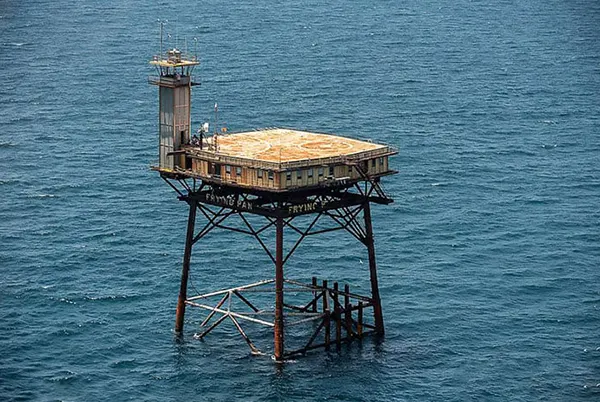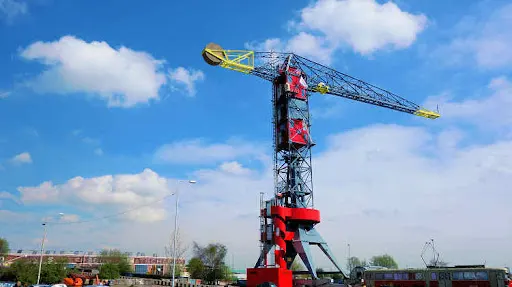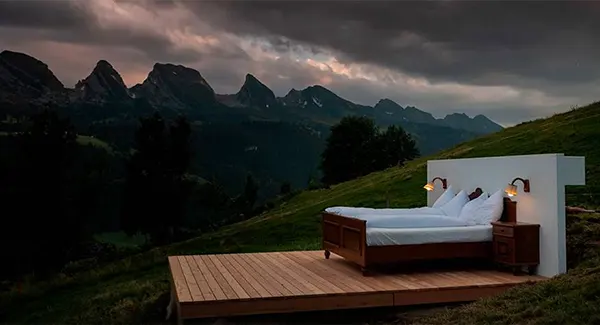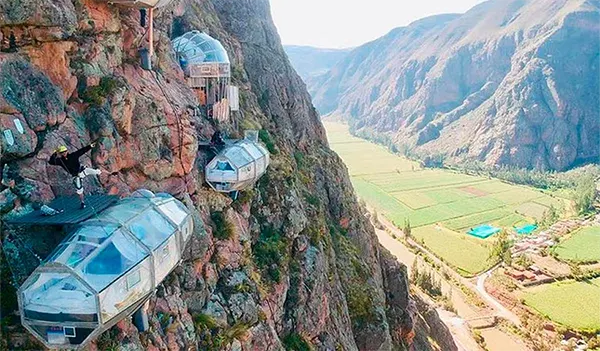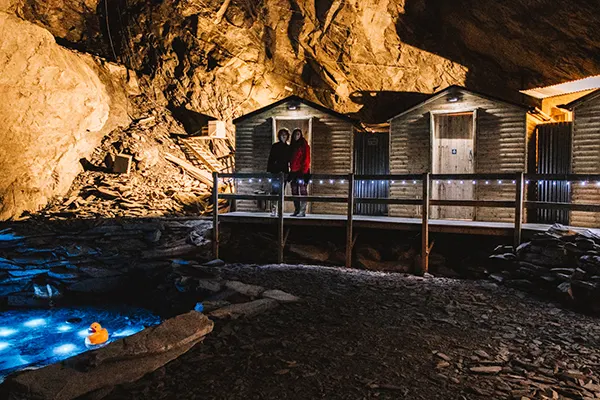
Deep Sleep Hotel: The World’s Deepest Hotel Experience in a Welsh Mine
In the remote valleys of Snowdonia, North Wales, a unique experience awaits adventurous travellers. The Deep Sleep Hotel is unlike any other accommodation in the world — it is located 1,375 feet underground in a long-abandoned slate mine. This extraordinary concept transforms a piece of industrial heritage into an unforgettable and safe overnight stay beneath the Earth’s surface.
What Is the Deep Sleep Hotel?
Officially opened in 2023, the Deep Sleep Hotel is operated by Go Below, an adventure tourism company known for subterranean exploration. The hotel is housed in Cwmorthin Quarry, near the village of Tanygrisiau. This slate mine was active in the 19th century and has since become a preserved relic of Welsh industrial history. After years of careful planning, the underground chamber was repurposed into a fully functioning hotel, attracting thrill-seekers and novelty lovers alike.
Guests must hike and abseil through old mining tunnels under the guidance of trained professionals before reaching the sleeping chambers. The journey alone takes nearly an hour and includes a full safety briefing, equipment fitting, and guided descent. Once there, visitors are greeted with warm drinks, stories of mining life, and a level of darkness and silence unlike anywhere else on Earth.
The accommodation consists of four private cabins and one group dormitory, all located in a vast, cathedral-like cavern. Designed with comfort in mind, the rooms are insulated, heated, and equipped with proper bedding and lighting. Despite being hundreds of metres underground, modern safety standards are rigorously observed, ensuring a secure stay.
The Historical Significance of the Site
Cwmorthin Quarry was a major contributor to Wales’s slate industry during the 1800s. At its peak, the mine supported a bustling community, and its tunnels stretched for miles beneath the mountains. Following its closure, the site remained sealed off for decades, largely untouched by time. The Deep Sleep Hotel initiative not only revitalised this location but also preserved its history through a respectful and minimal-impact adaptation.
During the overnight stay, guides share detailed stories about the workers who once toiled in these depths, adding a profound historical layer to the experience. The reuse of the mine for sustainable tourism reflects broader trends in converting heritage sites into modern attractions without compromising their authenticity.
Each element of the hotel, from its wooden pod construction to solar-powered lighting systems, is designed with environmental preservation in mind. This approach aligns with growing awareness of eco-tourism and cultural sustainability in modern travel.
What to Expect During Your Visit
The journey to the Deep Sleep Hotel begins at Go Below’s base near Blaenau Ffestiniog, where guests receive all necessary gear: helmets, harnesses, headlamps, and protective clothing. From there, a trained guide leads small groups into the labyrinth of tunnels, navigating both walking paths and climbing sections. The experience is tailored for participants with moderate fitness and a sense of adventure.
After reaching the hotel area, guests settle into their cabins, which are simple but cosy. A communal area provides space to unwind, chat, and learn about the geology and history of the quarry. There’s no mobile signal or Wi-Fi — a deliberate decision to enhance disconnection from modern life and foster mindfulness.
The underground atmosphere is cool, with temperatures hovering around 10°C year-round. Each pod is equipped with thermal insulation and sleeping bags to ensure a comfortable night’s rest. Guests are advised to bring extra layers, although all essential provisions are included in the booking.
Safety and Booking Details
Deep Sleep operates every Saturday night from April through September, with limited availability due to the capacity constraints and safety procedures. All participants must be over 18 years old, and the experience is not suitable for those with severe claustrophobia or certain health conditions. Each trip is led by two experienced caving professionals and monitored throughout the stay.
Booking in advance is essential, and demand often exceeds availability. Prices start from £350 for a two-person private cabin, including the guided tour, safety gear, dinner, and breakfast. The cost reflects both the logistical effort and the uniqueness of the stay, making it a once-in-a-lifetime adventure rather than traditional accommodation.
The project is regulated by local authorities and complies with the UK’s health and safety standards for extreme tourism. Emergency access protocols, lighting redundancy, and air quality monitoring are integral parts of the infrastructure.
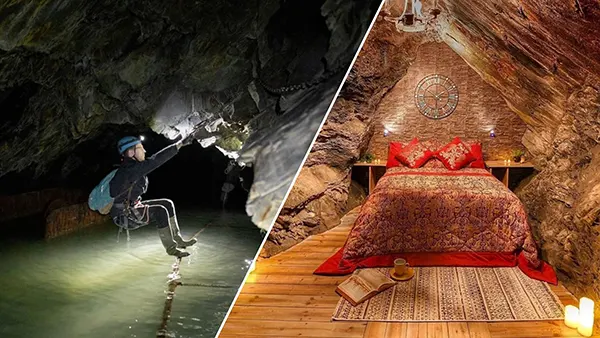
Why the Deep Sleep Hotel Stands Out
In a world where travellers constantly seek new and meaningful experiences, Deep Sleep offers something unmatched: a night spent in complete geological silence, far from civilisation. It’s not just a place to sleep but a moment of reflection, connection to Earth’s depths, and an encounter with history turned into hospitality.
Unlike novelty hotels that focus purely on visuals, Deep Sleep is rooted in education, preservation, and personal challenge. It invites guests to rethink comfort, adventure, and the value of disconnection. Rather than artificial attractions, the natural rock and reclaimed heritage form the core of the offering.
Reviews from early guests describe the experience as humbling and unforgettable, highlighting the respectful storytelling, surreal quiet, and deep sleep indeed — uninterrupted by modern life. It’s a journey that redefines what it means to explore, rest, and remember.
The Future of Subterranean Tourism
The success of the Deep Sleep Hotel could inspire similar projects elsewhere, particularly in regions with abandoned industrial sites. With proper planning and preservation, these spaces offer opportunities for experiential travel rooted in authenticity. Wales has set a precedent, combining innovation with cultural respect.
Efforts are already underway to expand guided mine tours during the daytime for visitors who are not prepared to spend the night but are still curious about the underground world. Educational programmes for schools and historical societies are also in development, aiming to share this hidden legacy with broader audiences.
As sustainability becomes a cornerstone of modern travel, concepts like Deep Sleep may lead the way in showing how tourism and conservation can go hand in hand — deep beneath the Earth’s surface.

